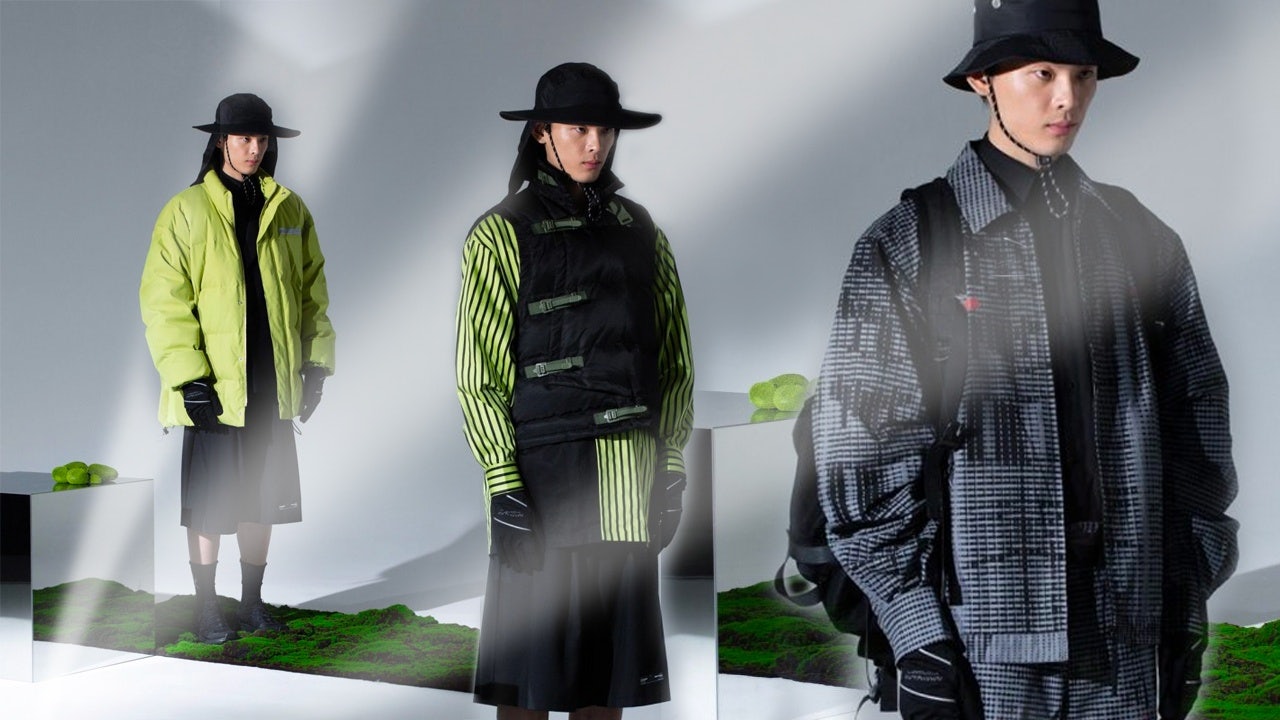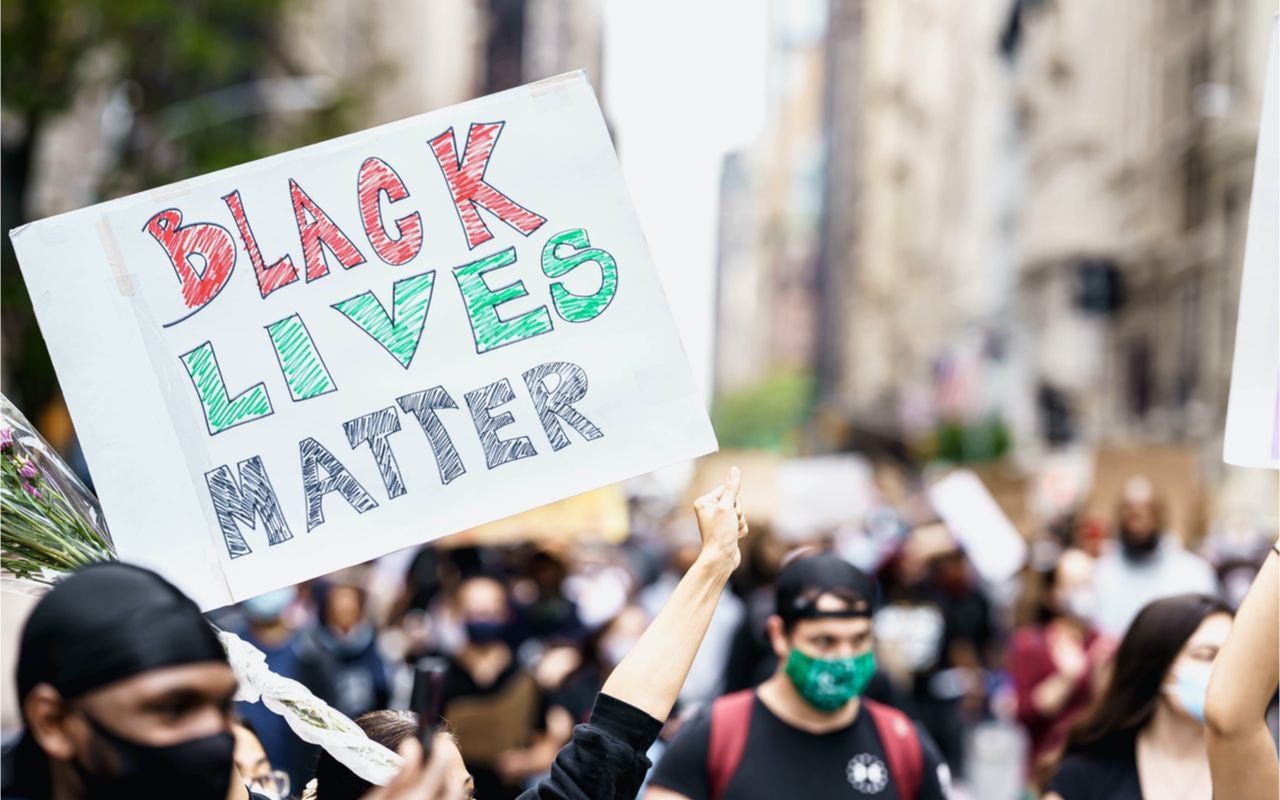Protests against social injustices have galvanized millions of people around the world, and this cultural pressure is helping to build a new standard for how brands approach social issues. Over the past few weeks, major luxury and fashion brands have collectively pledged to make their notoriously insular industry more diverse and more “woke,” a phrase used to refer to heightened awareness around social issues. However, while many brands are launching playbooks to support #BlackLivesMatter or are hiring diversity councils, corporate activism usually remains on the sidelines when it comes to companies in China, the world's biggest luxury market.
China's increasingly sophisticated internet censorship and surveillance are perhaps the most obvious reasons for its industry-wide silence. There’s also a misconception regarding China's “apolitical, purely pragmatic” consumers. The deep-seated idea that “Chinese shoppers don't care about social issues,” which is mostly due to a lack of serious fashion reporting on China, simply isn’t true. In fact, clothes are one of the only legitimate ways Chinese youths can express their identities in a society that is only becoming more restricted.
Brands must start researching and investing in the “woke” activities that drive today’s youth fashion scene in China. By addressing current issues, brands can resonate so strongly with young Chinese consumers that they'll create long-term attachments. And despite the country’s political limits, some issues are relatively safe to address. They include sustainability, women's bodies, and inclusivity.
Sustainability Matters#
“Since the outbreak of COVID-19, we have seen an acceleration in consumer interest for sustainable brands,” said Chloe Reuter, founder of the luxury intelligence agency Reuter Communication. “This trend of conscious consumerism is here to stay. Brands that can showcase provenance, transparency, and a commitment to a social cause will resonate with an increasingly self-aware audience.”
In the wake of 2020’s disastrous events, voices championing environmental causes have multiplied in both China's government campaigns and within the fashion media. The Shenzhen-based cult brand RoaringWild even used Rachel Lopez's “The Silent Spring (1962)” — the book that ignited the modern Environmental Movement — as the central theme of its Spring/Summer 2020 collection. Through photo imagery and a dedicated music video, the brand has made exhaustive inquiries into the fragile relationship between humans and nature.
In Pre-COVID-19 China, such expressions of ecological awareness were relatively rare, and once made public, would often face skepticism. But as issues like climate change have proven to be undeniable facts, even the harshest skeptics have come to acknowledge the worsening environment as a real problem.
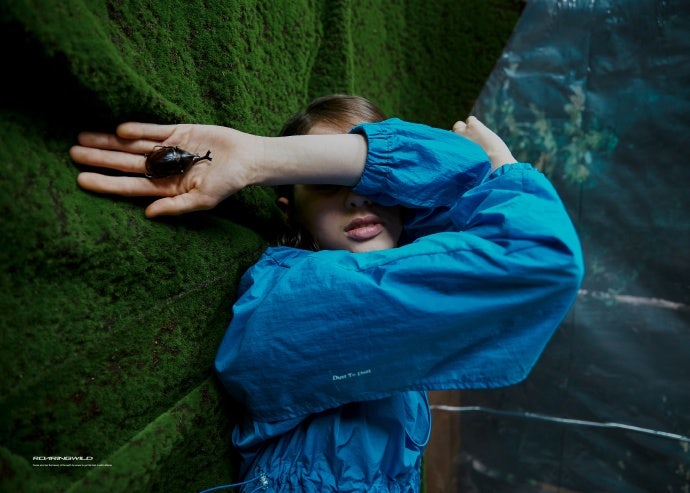
Women's Bodies Matter#
A reckoning on women's roles and bodies has also dominated Chinese social media spheres lately. During China’s COVID-19 peak in February, several scandals exposing the unfair treatment of female medical workers set the millennial Internet on fire. A chain of high-profile sexual assault cases soon followed, further revealing a national system that protects powerful men from being held accountable. In late May, the drafting of China’s first-ever Civil Code fueled outrage from the younger generations' about the state’s oppression of women. Containing over 1000 articles, the Civil Code essentially suggests that Chinese women should divorce less and birth more often.
Ironically, China's heightened conservative policies have come at a time when more and more young women are opening feminist social-media accounts. On the Twitter-like platform Weibo, hashtags advocating the normalizing of women's bodies, such as #SayNoToPeriodShame# and #Don't HideThePeriod#, have gained a lot of momentum. When political policy increasingly equates women's bodies with reproductive tools, a growing number of women will refuse to identify with this goal.
In May, the feminine care brand Libresse aired China's first ad showing period blood in red instead of blue. The ad video reached over 200 million views on Weibo in less than a week. Earlier, in March, the Chinese DTC brand Neiwai launched one of the nation's first body-positivity campaigns. Its campaign with the “No Body is Nobody” slogan, which shows women with flat-chests, stretch marks, belly fat, and scars, was a provocation against the picture-perfect beauty standards that prevail in Chinese media.
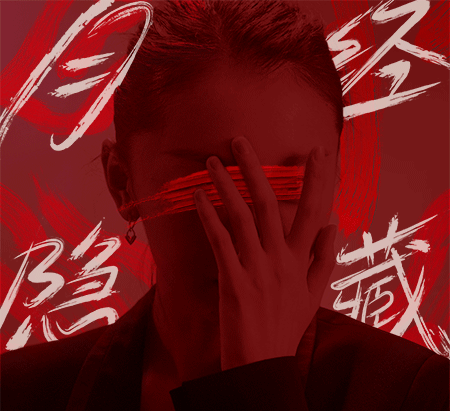
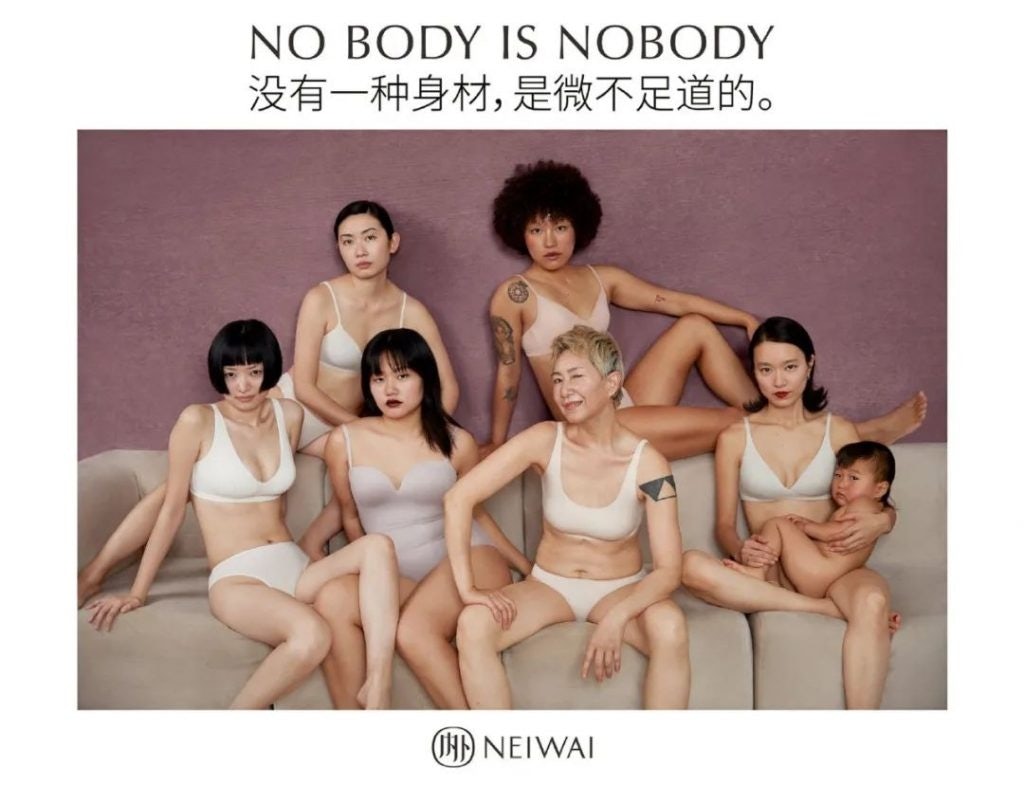
In a Western context, discussions surrounding body positivity might already seem banal and could even be accused of “woke-washing.” But in China, where the female body is still primarily seen as a reproductive device needing aesthetic improvements, women need representations that normalize their female conditions.
Inclusivity Matters#
Under mounting pressure from the younger generations, the Chinese state has slightly relaxed its stance on matters like the LGBTQ+ community.
Censorship of open celebrations of different sexuality has significantly reduced during June (Pride Month). Recently, the Italian brand Diesel partnered with ShanghaiPRIDE on a rainbow-themed collection that aims to normalize the LGBTQ community, and ENG Concept Store, a Shanghai-based buyer shop, has been trending on Weibo because of its openly PRIDE-themed décor and events. In an environment where anything other than a traditional family model can draw public ire, these small steps shouldn’t be taken for granted.
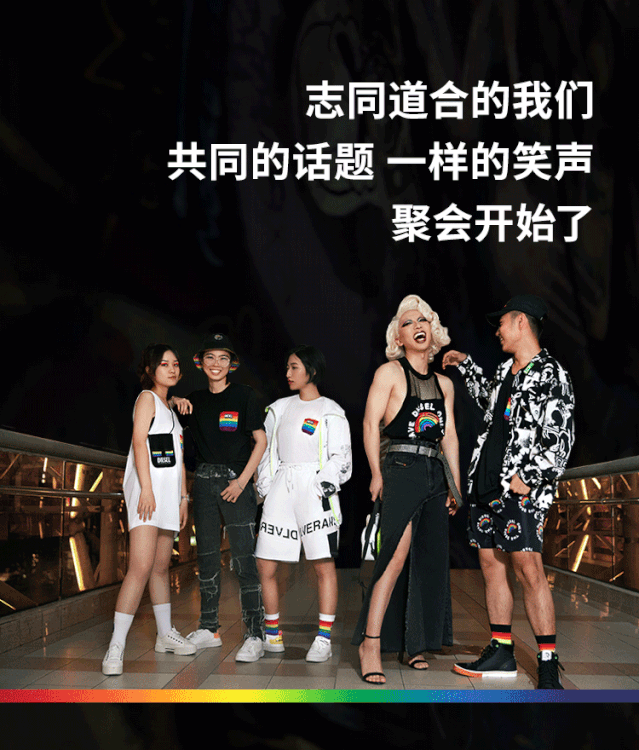
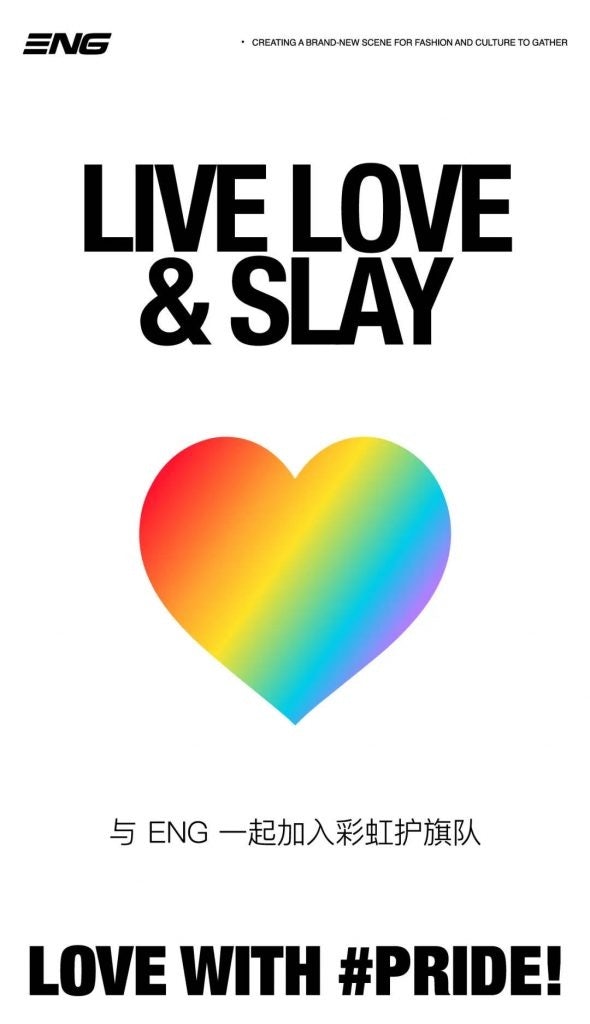
Despite a rising level of “woke” discourse, brands can’t equate Western-style woke consumerism with China's current situation. “There is a range of social issues in China's public consciousness such as income inequality, gender equity, and pollution,” said Michael Norris, a China consumer insight researcher. “But the range is perhaps narrower than what you'd expect to see in overseas markets. Still, they tie in closely with China's current development stage.”
Unlike their Western counterparts, most Chinese youths don’t think that luxury and fashion brands becoming “woke” is an imminent moral imperative. They believe it's a worthy issue for brands to take an instrumental role in shaping public discourse, but it doesn’t need to be their priority.
This attitude doesn't mean that the industry will necessarily stick to an old model of selling without provoking. After all, consumers of every background, even the wealthy, live in dynamic times. As an industry that occupies such a unique place in the zeitgeist, luxury and fashion should and can make meaningful strides. Brands have responded to the #BLM movement with a strong commitment, but they should do the same with issues that matter to a Chinese audience as well.
